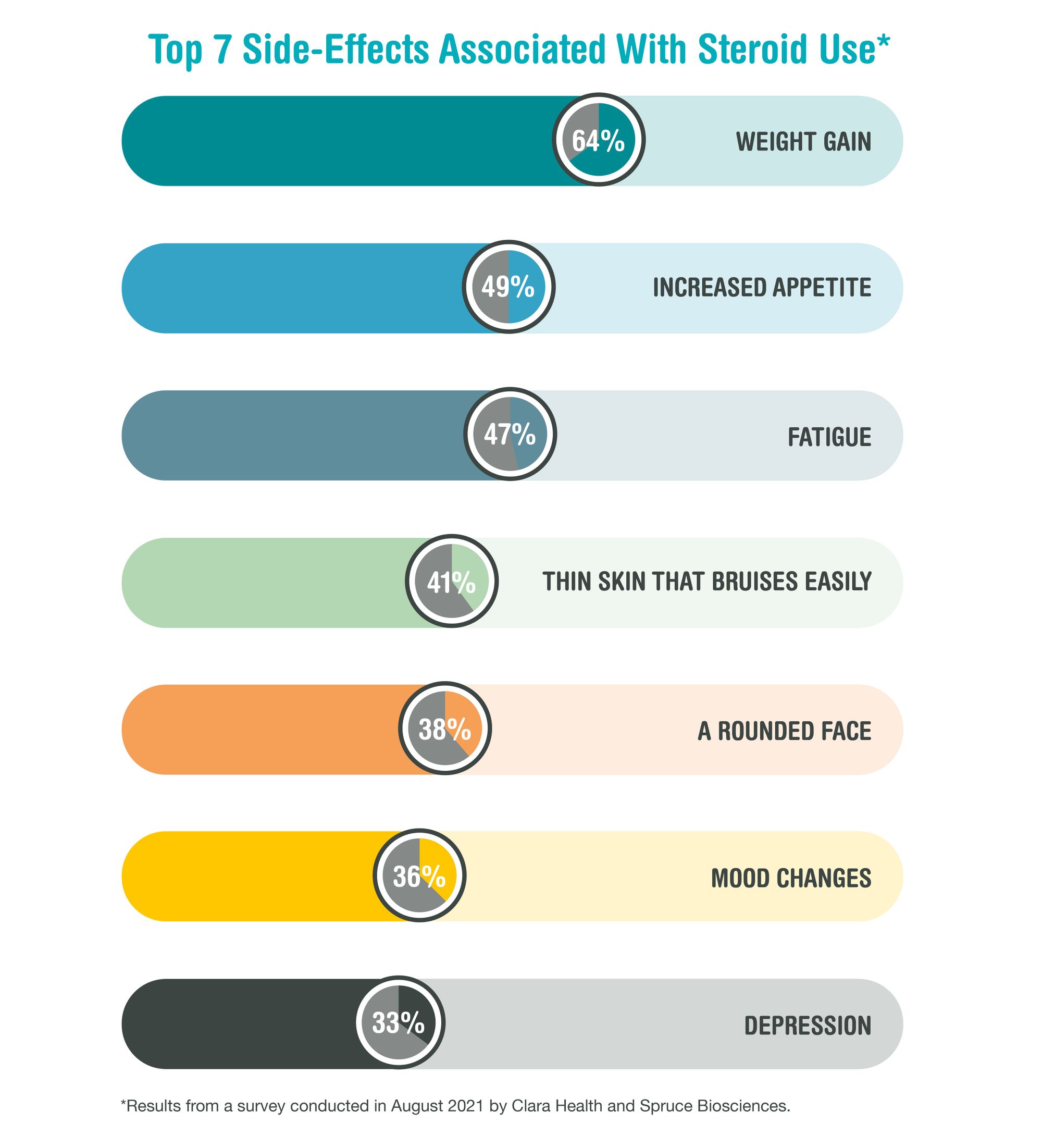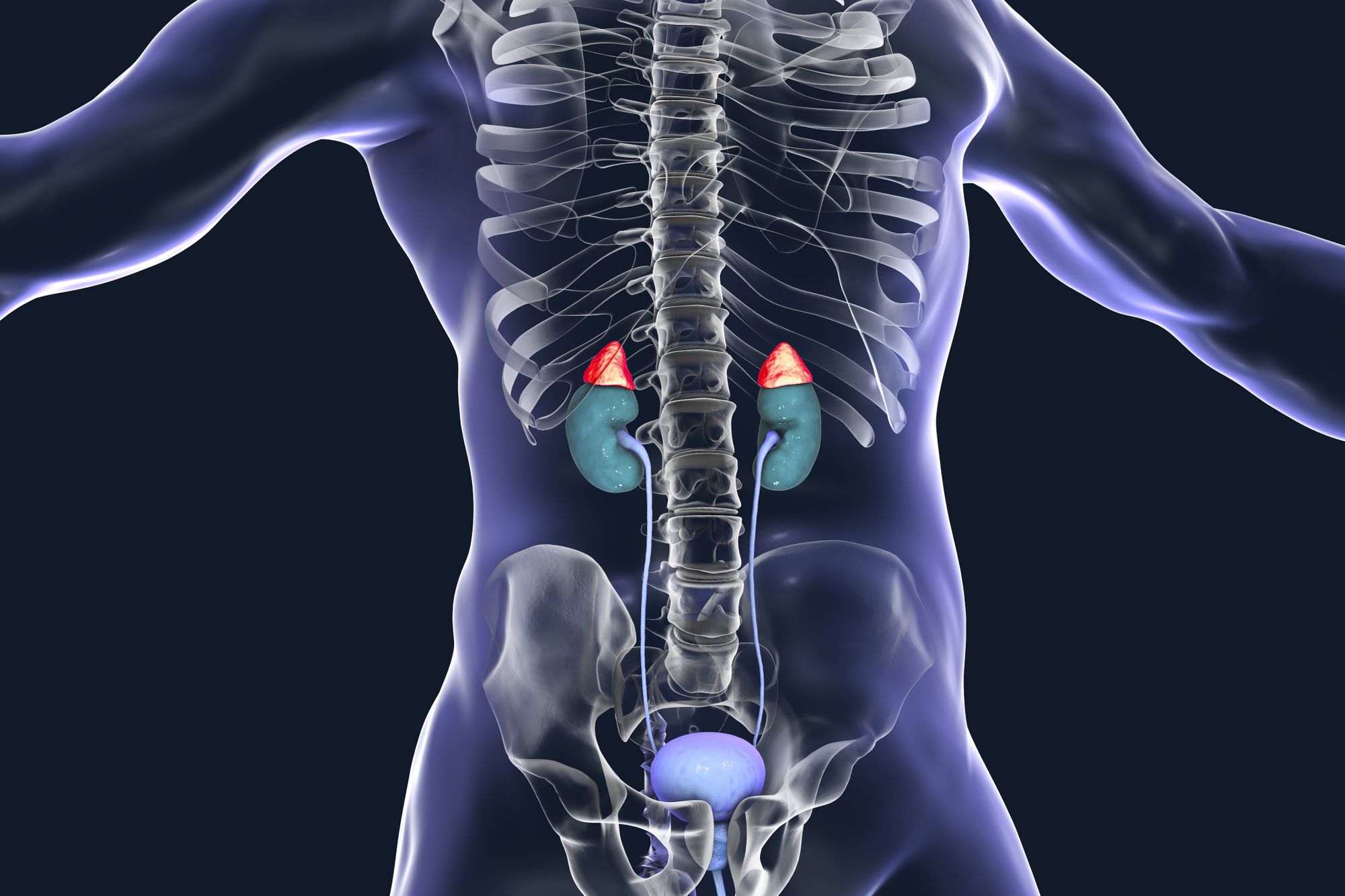
We received 113 responses to the survey and have compiled the findings here to share back with the community.
Spruce Biosciences and Clara would like to express gratitude to the survey respondents for their interest and support.
Respondents' Perceptions of their CAH Steroid Regimen
75% of survey respondents were satisfied with their current steroid regimen. 87% found their treatment “very effective” or “effective,” 11% found it “somewhat effective,” and 2% reported their treatment was “not effective at all.” Respondents who were satisfied with their regimen noted that steroids:
- support their quality of life
- are a predictable and familiar treatment
- are easy to administer
- are generally accepted as an effective treatment
Participants highlighted how familiarity with their treatment can be a supportive element:
“I have been taking the same pills for a while, so I feel comfortable with what I am taking and my body still reacts positively to it. I go to the endocrinologist to check labs and maybe shift doses, but the consistency is very nice.”
Others echoed a similar confidence in their regimen, and one shared that it was easy to incorporate into their daily life:
“I take medications at convenient times (morning, when I wake up, and bedtime). This means I do not need to carry medications around to take during the day. Also, I believe my CAH is well controlled with my current corticosteroid regimen.”
Some respondents noted challenges with their treatment, including side-effects. The top seven side-effects that respondents attributed to steroids were weight gain, increased appetite, fatigue, thin skin that bruises easily, a rounded face, mood changes/swings, and depression.

Participants also expressed a lack of awareness regarding the long-term risks of steroid treatment. 50% reported they have discussed the long-term risks with their healthcare provider, 37% said they have not had this discussion, and 13% were unsure. Additionally, 51% respondents have been in a situation where they were not given or able to find enough information about the risks of steroids to make an informed and empowered decision about treatment.
Willingness to Change Current CAH Steroid Regimen If a Lower Dose was an Option
While respondents noted steroids are effective in treating their CAH, 66% indicated they would be willing to change their current regimen if there was an opportunity to lower the dosage, 29% were unsure if they would make a change, and 5% indicated they were not willing to change their current dosage.
Respondents’ openness to adjusting their steroid dosage stemmed from:
- the potential benefit of a new treatment approach
- disliking side-effects
- concerns around long-term usage
Some participants’ willingness to adjusting their dosage stemmed from the potential benefit of doing so, for example:
“I would be willing to change my dosage if there was a proven and safe way to do so, knowing that if it didn’t work out, I could always go back to my current dosage which controls my CAH relatively well.”
Others were open to adjusting their dose because they disliked the side-effects of steroids and had concerns around long-term risks. One respondent shared:
“I am very very worried about the health risk of my corticosteroid dose. I take 50 mg daily which to my understanding is exceptionally high. But it is what I need to function at my best. I feel like I am in between a rock and a hard place. I want to live my life to its full potential but I also don’t want to die, get diabetes, or go blind.”
Key Takeaways from Survey:
- The majority of respondents indicated they were satisfied with their steroid regimen and found it effective. At the same time, the majority indicated an interest in lowering their steroid dosage if it was an option.
- About half of respondents said they have been in a situation where they were not given enough or able to find enough information about the risks of steroids to make an informed and empowered decision about treatment.
- Respondents’ willingness to potentially use a lower steroid dose was associated with concerns around both immediate and long-term side-effects of steroid use.
For additional information about the treatment of CAH, please check out this blog post.
This is a sponsored post.





